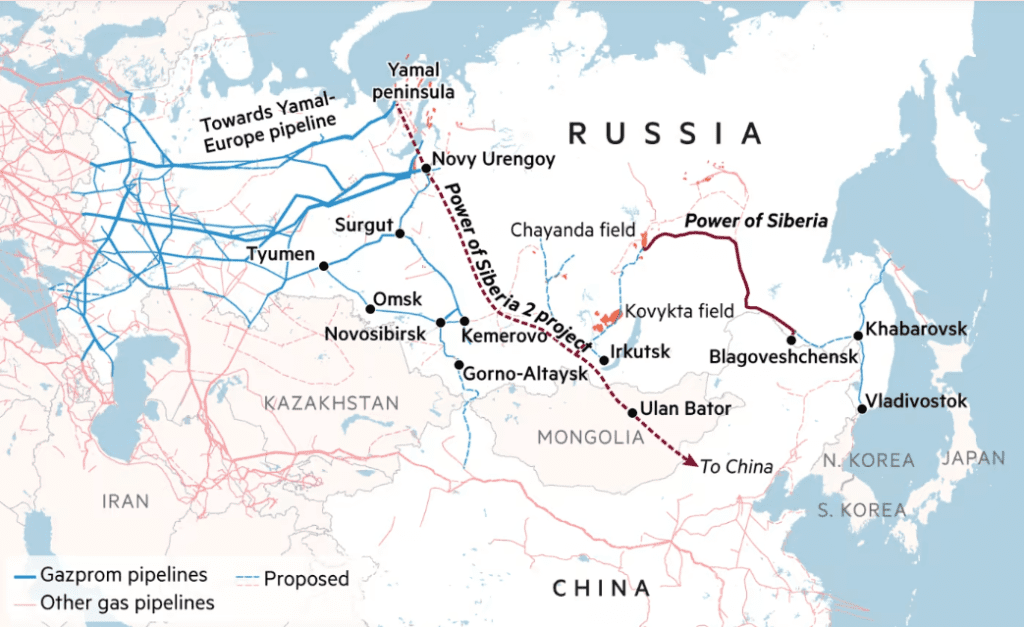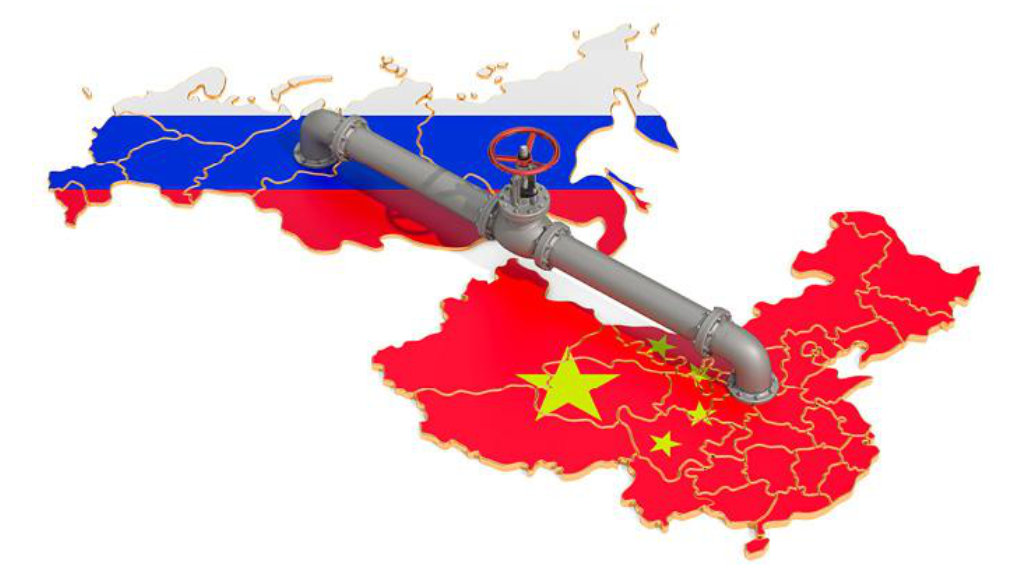Russian President Vladimir Putin met with Chinese President Xi Jinping on the sidelines of the Shanghai Cooperation Organization summit in Astana yesterday (July 3), and have instructed the two countries’ responsible companies to agree on the terms of gas supply via the Power of Siberia 2 pipeline “as soon as possible,” according to Russian Deputy Prime Minister Alexander Novak.
Novak said that the delayed Power of Siberia 2 project was “Discussed and backed by both sides. We will continue to negotiate the conditions and parameters. Instructions have been given to do it as soon as possible.”
Novak did not specify possible deadlines for signing the contract or starting supplies, “No one is giving a date for signing the contract, because it is a negotiation process.” The timeframe for the start of supplies is “a subject of negotiations between the two countries and the two companies,” he added. However, Presidential pressures are likely to force Gazprom and Sinopec to reach a deal.
Negotiations have become protracted as the costs of the Power of Siberia 2 (PS-2) pipeline are more significant than the currently operating Power of Siberia 1 (PS-1). Slow-walking PS-2 gives China’s importers leverage in contract negotiations with Russia and other suppliers; the discussions themselves put pressure on suppliers to sign contracts or risk losing a share of China’s natural gas market. China signed a gas supply contract with Qatar recently to make this point. Another reason China has been in no hurry to finalize an agreement for PS-2 is that the country is unlikely to need the gas before the mid-2030s.

However, If China moves forward with PS-2, it will look to secure a lower price for PS-2 gas than it secured for PS-1 gas, since it is in a stronger negotiating position with Russia than it was in 2014 when the supply contract for PS-1 was signed. China customs data from December 2019 through December 2021 show that PS-1 gas was cheaper than China’s other pipeline gas and LNG imports. Sinopec essentially want Gazprom to agree a similar price for PS-2 gas supply as it agreed for PS-1 supplies. Both Xi and Putin now appear to want the protracted issue moved off their desks and into actual productivity.
If agreed, the project would also generate orders for Russia’s steel producers and subcontractors and accelerate the economic development of the Russian Far East, a top priority for Moscow.
Further Reading
Russia Signs Sakhalin Pipeline Deal To Supply China

 Русский
Русский













